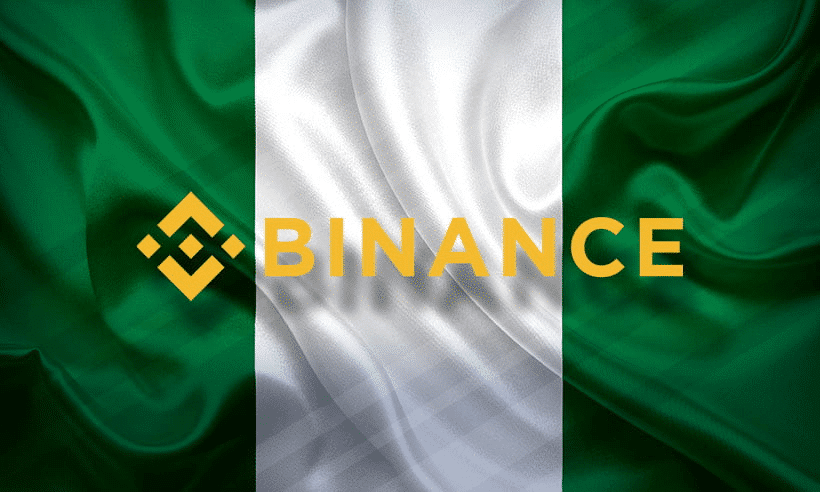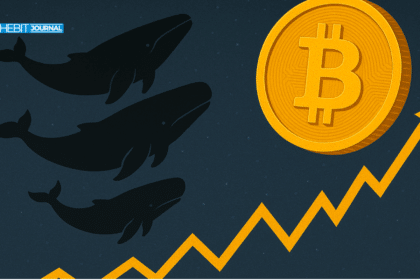Binance, a leading cryptocurrency exchange, is the target of severe accusations made by the Central Bank of Nigeria. The CBN alleges that Binance lacks crypto exchange licenses. Hence, Binance allegedly made unlawful transactions in the country. Therefore, this led to a breach of Nigerian financial regulations. Traditional banking institutions and Nigeria’s quickly developing cryptocurrency sector are already at odds. However, this claim is a major step toward a full-blown war.
Crypto usage has soared in Nigeria, which leads financial technology globally. Nigerians frequently transact internationally using Bitcoin (BTC) and Ethereum (ETH) to diversify their financial assets. However, these allegations have tarnished Nigeria’s cryptocurrency ecosystem, especially Binance. The popular cryptocurrency publication The BIT Journal covers this event to inform its readers.
Regulatory Scrutiny: Binance’s Alleged Illegal Operations in Nigeria
CBN charges brought Binance before the Federal High Court of Nigeria on July 5. Binance’s unclear licensing and regulation worry the Central Bank of Nigeria. According to local media, Olubukola Akinwunmi appeared before the Abuja Federal High Court. Olubukola is responsible for payment policy and regulation at the Central Bank of Nigeria. Recently, he asserted that only banks and authorized financial institutions should be able to conduct Binance’s withdrawal and deposit.
It appears that Binance has been operating in Nigeria, violating its legal and regulatory requirements. “In the course of carrying out our operations, we normally monitor development within the SEC (Securities and Exchange Commission), monitoring the activities of payment service providers and the usage of the payment system.” “We observed in doing that that Binance provides a trading platform where users trade virtual assets,” Olubukola noted.
According to news sources, this testimony has brought up several important issues. The corporation can face severe legal ramifications if this accusation is accurate. The Nigerian government has levied accusations against Binance and its executives. The crypto update claims Tigran Gambaryan and Nadeem Anjarwalla plotted to conceal $35.4 million from Nigerian illegal activities. According to reports, it was also discovered that peer-to-peer transactions on the exchange are not authorized. In a Binance peer-to-peer transaction, one party sends naira to another’s bank account. Then, both parties confirm the transaction on the platform. This causes Binance to release the fiat currency or digital asset.
According to Akinwunmi, the P2P service is a regulated activity, and Binance does not have the authority to provide it. According to the crypto update, Binance disabled the P2P feature in Nigeria in response to this. The Central Bank of Nigeria voiced its worries about these illegal operations. They are concerned about the possible economic effects, especially on capital flight and currency stability.

The Central Bank of Nigeria has taken a cautious, if not completely sceptical, approach to cryptocurrency. Nigerians demand cryptocurrencies despite regulatory issues. Many Nigerians trade Bitcoin and Ethereum on peer-to-peer networks. The continued interest in digital assets, especially BTC and ETH, mounts pressure on Nigerian authorities. They ought to establish a more robust regulatory framework.
BICCoN, a crucial stakeholder in the country’s blockchain and cryptocurrency ecosystem, has closely monitored these advances. For some time now, BICCoN has been pushing for crypto legislation. They aim to strike a fair balance between consumer protection and encouraging innovation in the financial technology industry. Binance and other Nigerian cryptocurrency exchanges may feel the effects of this legal investigation for quite some time.
Implications of the Central Bank of Nigeria Intervention for Nigerian Crypto Exchanges
The CBN’s accusations against Binance show how traditional banks and the cryptocurrency industry in Nigeria have a complicated relationship. The outcome of this case may determine the legal framework for crypto exchanges in the nation and may even affect Africa as a whole. Crypto companies, the Central Bank of Nigeria, and groups like BICCoN must maintain an open line of communication. Nigeria’s capacity to balance innovation and regulation will determine cryptocurrency’s future.
The Central Bank of Nigeria’s accusations against Binance highlight how cryptocurrency policy constantly changes worldwide. Countries interested in blockchain technology have to navigate carefully. Digital assets like Bitcoin (BTC) and Ethereum (ETH) continue to gain popularity. Hence, they must regulate them while minimizing dangers. The BIT Journal will update the community on this momentous event in Nigeria’s cryptocurrency landscape.




























